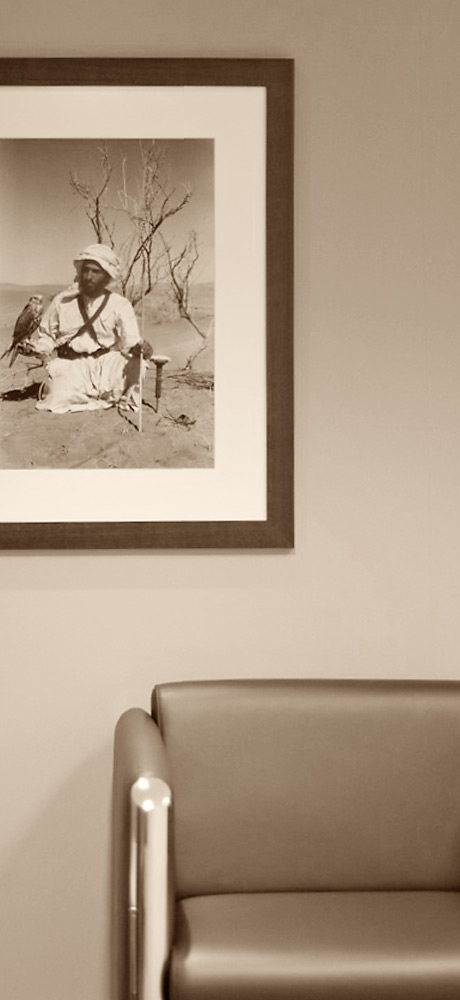In order to obtain a work permit for a new employee, the employer must usually deposit a bank guarantee with the competent authority at the beginning of the employment relationship and can only reclaim it after the employment has ended. The purpose is to at least partially secure the employee's entitlements in the event of a dispute. The provision of such bank guarantees means that large sums are often tied up, depending on the number of employees and location of the employer. This situation is remedied by insurance schemes that replace bank guarantees and are currently existing in the mainland of the United Arab Emirates ("UAE"), in the Jebel Ali Free Zone ("JAFZ") as well as in the Dubai Multi Commodities Centre ("DMCC"). Companies based in the above-mentioned areas will thus have the opportunity to improve liquidity. Below, we will present the most important aspects of the new insurance schemes:
1. Mainland
a. Scope
In the mainland of the UAE, i.e. within the jurisdiction of the Ministry of Human Resources & Emiratisation, the employer is obliged to provide a bank guarantee or to take out an insurance solely for those employees who are also sponsored by the employer, i.e. who receive not only a work permit but also a residence visa through the employer.
b. Insurance Coverage
Since the end of 2018, the bank guarantee has generally been replaced by the insurance.
While the bank guarantee covers an amount of AED 3,000 only, the insurance secures claims up to AED 20,000 per employee and includes the following items: End-of-service benefits, compensation for unused leave and overtime, unpaid salaries, return air ticket to the employee's home country and medical expenses in case of occupational injuries.
c. Premium
The insurance premium amounts to AED 60 per year and employee. In contrast, a lump sum of AED 3,000 is payable for a bank guarantee.
d. Application
If certain conditions are met, the insurance is mandatory. Hence, the employer cannot choose between bank guarantee and insurance.
The insurance must be obtained in case the employer has not committed any violations against the Wages Protection System for at least six months. Salaries must have been paid on time and in full during this period. Otherwise, a bank guarantee is still to be provided.
If the employer is compliant and irrespective of whether a bank guarantee already exists for an employee, the insurance is automatically concluded as part of the application procedure for renewing a work permit or applying for a new work permit. The premium is also invoiced automatically.
The employer must request the reimbursement of existing bank guarantees in a separate procedure.
2. JAFZ
a. Scope
With the exception of shareholders and senior managers who have signed a so-called Employment Contract Undertaking, a bank guarantee or insurance must be provided for every employee of a company licensed in JAFZ. This applies - unlike in the mainland of the UAE - regardless of whether the employer provides the employee's residence visa in addition to the work permit (referred to as employment card in JAFZ).
b. Insurance Coverage
Since September 2019, the so-called Workforce Protection Programme has effectively replaced the bank guarantees in JAFZ.
The insurance covers all of an employee's claims arising from the employment relationship, however up to different maximum amounts depending on the monthly basic salary. The cover ranges from AED 10,000, if the monthly basic salary is less than AED 4,001, to AED 60,000, if the monthly basic salary is more than AED 20,000.
In case of a bank guarantee, the protection provided corresponds to the amount of the guarantee sum deposited.
c. Premium
The premium for the Workforce Protection Programme depends on the employee's monthly basic salary and ranges from AED 160 to AED 610 for a period of three years.
In comparison, the bank guarantee is several times higher. It amounts to 1.5 months' basic salary of the employee plus a lump sum determined by the Jebel Ali Free Zone Authority for the return flight to the employee's home country.
d. Application
The utilisation of the Workforce Protection Programme is generally mandatory for the employer. The employer is not entitled to choose between insurance and bank guarantee.
However, the insurance can only be applied for if no violations against the Wages Protection System have been recorded for a period of 18 months. Otherwise, the bank guarantee must still be provided.
Furthermore, the application for the repayment of a bank guarantee and the conclusion of a new insurance is only possible in connection with another application. Either an existing residence visa or a work permit must be renewed or a new residence visa or work permit must be applied for.
A bank guarantee is refunded via the Dubai Trade Online Portal. The employer can then either use the credit balance for future applications, such as license renewal, or request a transfer to the company's bank account.
3. DMCC
a. Scope
In DMCC, the employer must provide all employees with a bank guarantee or corresponding insurance. This also applies to shareholders who are, at the same time, employed by their company in DMCC.
b. Insurance Coverage
The bank guarantee for employees, which was previously required in DMCC as well, is generally replaced since the introduction of the so-called Employee Protection Insurance ("EPI") on 19.05.2020.
The EPI covers unpaid salaries and flight tickets, end-of-service benefits, medical expenses in the event of occupational injuries, as well as the costs of repatriating the employee or his remains to the home country.
The maximum insurance cover is based on the selected validity of the residence visa and the employee's monthly basic salary. It ranges from AED 10,000 to AED 50,000. The lowest level of insurance coverage of AED 10,000 applies to employees with a basic salary of less than AED 4,000 and a residence visa validity of one year. The maximum protection of AED 50,000 is enjoyed by employees with a monthly basic salary of AED 19,001 or more and a residence visa validity of three years.
In contrast, the bank guarantee covers a lump sum of AED 3,000.
c. Premium
The premium for the EPI is also based on the employee's monthly basic salary and the chosen period of validity of the residence visa. If the residence visa is valid for one year and the monthly basic salary is less than AED 4,000, the insurance premium amounts to AED 85. The maximum premium payable
is AED 570 if the monthly basic salary amounts to at least
AED 19,001 and the residence visa has a three-year validity.
For the bank guarantee, a one-time flat rate of AED 3,000 per employee is payable.
d. Application
As in the mainland of the UAE and in JAFZ, an employer in DMCC has no choice between the insurance and the bank guarantee. The conclusion of an EPI is mandatory, provided its conditions are met.
The EPI is not (or no longer) available if a company licensed in DMCC has not paid two consecutive monthly salaries to an employee and DMCC has received a complaint in this regard. In this case, the EPI is withdrawn for all existing employees of the company and replaced with the bank guarantee of AED 3,000 per employee. New employees then have to be provided with a bank guarantee as well. Recourse to the EPI is only possible and mandatory again as soon as all labour disputes have been settled and no new complaints have been made against the employer for a period of at least six months.
Unless the employer is blocked as described above, the EPI is automatically requested for via the DMCC Online Portal if the employer initiates one of the following procedures: Application for a new residence visa, renewal of an existing residence visa, transfer of a residence visa, application for a new work permit (referred to as Employment Card in DMCC), renewal of an existing work permit or application for adjustment of the employee's salary.
It is not possible to apply for repayment of the bank guarantee without initiating one of the above services at the same time.
Bank guarantees that have already been provided are refunded to the employer's account in the DMCC Online Portal and can be used for future applications or transferred to the company's bank account.
Conclusion
The new insurance schemes are advantageous for both parties to an employment relationship. Employers improve cash flow, in particular those based in JAFZ. Employees benefit, in most cases, from enhanced protection against default of payment by the employer with regard to labour-related claims because the insured sums are considerably higher.
Because of these advantages, it can be assumed that insurance schemes will completely replace the bank guarantee system in the long run. Other free zones, such as the Dubai Airport Freezone, are already working on similar regulations.

